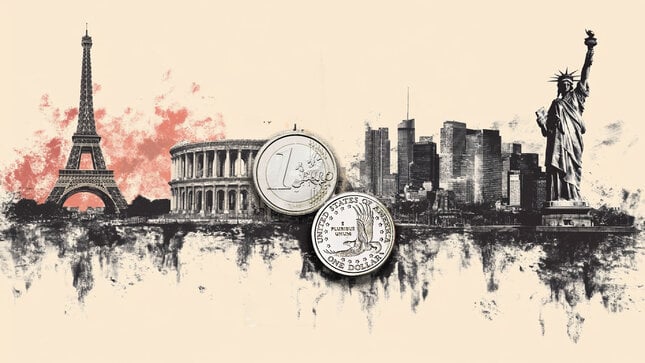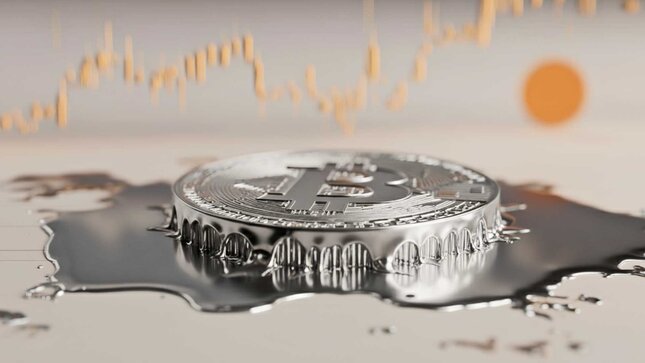I believe the worst of the ongoing crisis is behind us. Over this time, we have experienced personal loss, price spikes, market crashes, health disasters and geopolitical shocks. To be more specific, since 2017, the markets have been affected by several crises and shocks that have dramatically affected our lives, crushing currencies, crippling economies, and causing many businesses to shut down. Some of these crises have affected the markets more abruptly than others and here following I cover some of the most notable impacts of recent and ongoing crisis:
-
President Trump trade war with China which caused prices raise for basic products across the globe.
-
Global pandemic that killed over 6.5 million people and caused $9 trillion of GDP loss in 2020 (10 % of global output).
-
Climate and technology shocks costing the global economy respectively 280 billion in 2021 due to natural disasters and affecting shipping prices across the board due to the Suez Canal accident.
-
Russia war in Ukraine killing thousands of people and threatening peace stability in Europe for the first time since WW2 and energy security. Ukraine reconstruction cost to date is estimated at $ 1 trillion this is 5 times Ukraine’s 2021 GDP.
-
Skyrocketing inflation at a 40 year high at 8-9% in the EU and the US eroding welfare of people particularly the most vulnerable.
-
Global recession which in 2022 alone has wiped out 30-50% valuation of stocks and companies inflicting grave pain to investors and households.
While several of the above crises are not fully under control, we have managed to overcome the worst consequences of these shocks, and people and companies have built resiliency and proactive risk management capabilities. What we have also built is a higher level of risk awareness and readiness that will allow us to be better prepared for future unexpected events, be it a climate disaster or an unpredictable economic shock. For instance, supply chain recent shocks caused by geopolitical uncertainty, and climate risk, have pushed many companies to be more focused on multi-sourcing rather than sole sourcing. High inflation is leading to unprecedented interest rates increases, and the unlawful invasion of Ukraine has triggered heavy sanctions on the Russian state and Central Bank.
You are the best stock to invest in
While participating in the Berkshire & Hathaway shareholders meeting in May 2022, a young lady from the audience asked the billionaire investor Warren Buffet. “You have been very good at picking good stocks. Which stock should I invest in given the ongoing crisis”? Warren Buffett responded.” You are the best stock you can invest in”. What Mr. Buffett means that by investing in yourself you will reach the exceptional expertise you will need to succeed in business and in life. Warren Buffett is also known for leveraging every crisis that occurred by using his large cash balance saved to acquire underpriced stocks (battered by the market fear) that led to massive returns. The message here is to accumulate savings as liquidity is king, particularly during economic downturns. He also once famously advised investors to be “fearful when others are greedy, and greedy when others are fearful."
Investing during a time of crisis such as the ongoing one is no doubt risky, as we are still completely unsure about what kind of recession is coming, whether the Russia- Ukraine crisis will be long lasting, and whether prices will continue to rise. A protracted recession followed by stagflation is a real possibility and attempting to spot the bottom of the market is mostly guess-work and luck. However, if we stay away from the daily noise, and focus on long-term value creation and personal growth you will position yourself for early wins as the global economy starts recovering.
Sectors to watch
As the tail-end of this crisis shapes up, we believe there are rewarding investment and business opportunities in digital transformation, decarbonization and green- growth. These investment trends will shape our lives and will generate opportunities. Those joining these trends will benefit from the rapid market transformation that is ongoing regardless of the crisis. Just to give you some background, green tech investment alone is expected to reach $5 trillion by 20250, representing the biggest investment shift ever experienced by markets.
Conclusion
Investor psychology predicts that people tend to overreact during crises, both to the market downside and the upside, so maintaining operational routine, continuing learning, and performing due diligence will help you identify lucrative investment opportunities. Profiting from investing during a time of crisis requires patience, good judgement, and focus, and ideally a solid liquidity base to make opportunistic purchases and investments. While you do your market due diligence to spot opportunities, invest in yourself as this remains the most effective strategy to outperform your competitors.
All information posted is for educational and information use only, and it should never replace professional advice. Should you decide to act upon any information in this article, you do so at your own risk.
Editors’ Picks

EUR/USD: US Dollar comeback in the makes? Premium
The US Dollar (USD) stands victorious at the end of another week, with the EUR/USD pair trading near a four-week low of 1.1742, while the USD retains its strength despite some discouraging American data released at the end of the week.

Gold: Escalating geopolitical tensions help limit losses Premium
Gold (XAU/USD) struggled to make a decisive move in either direction this week as it quickly recovered above $5,000 after posting losses on Monday and Tuesday.

GBP/USD: Pound Sterling braces for more pain, as 200-day SMA tested Premium
The Pound Sterling (GBP) crashed to its lowest level in a month against the US Dollar (USD), as critical support levels were breached in a data-packed week.

Bitcoin: No recovery in sight
Bitcoin (BTC) price continues to trade within a range-bound zone, hovering around $67,000 at the time of writing on Friday, and falling slightly so far this week, with no signs of recovery.

US Dollar: Tariffed. Now What? Premium
The US Dollar (USD) reversed its previous week’s decline, managing to stage a meaningful rebound and retesting the area just above the 98.00 barrier when tracked by the US Dollar Index (DXY).
RECOMMENDED LESSONS
Making money in forex is easy if you know how the bankers trade!
I’m often mystified in my educational forex articles why so many traders struggle to make consistent money out of forex trading. The answer has more to do with what they don’t know than what they do know. After working in investment banks for 20 years many of which were as a Chief trader its second knowledge how to extract cash out of the market.
5 Forex News Events You Need To Know
In the fast moving world of currency markets where huge moves can seemingly come from nowhere, it is extremely important for new traders to learn about the various economic indicators and forex news events and releases that shape the markets. Indeed, quickly getting a handle on which data to look out for, what it means, and how to trade it can see new traders quickly become far more profitable and sets up the road to long term success.
Top 10 Chart Patterns Every Trader Should Know
Chart patterns are one of the most effective trading tools for a trader. They are pure price-action, and form on the basis of underlying buying and selling pressure. Chart patterns have a proven track-record, and traders use them to identify continuation or reversal signals, to open positions and identify price targets.
7 Ways to Avoid Forex Scams
The forex industry is recently seeing more and more scams. Here are 7 ways to avoid losing your money in such scams: Forex scams are becoming frequent. Michael Greenberg reports on luxurious expenses, including a submarine bought from the money taken from forex traders. Here’s another report of a forex fraud. So, how can we avoid falling in such forex scams?
What Are the 10 Fatal Mistakes Traders Make
Trading is exciting. Trading is hard. Trading is extremely hard. Some say that it takes more than 10,000 hours to master. Others believe that trading is the way to quick riches. They might be both wrong. What is important to know that no matter how experienced you are, mistakes will be part of the trading process.
The challenge: Timing the market and trader psychology
Successful trading often comes down to timing – entering and exiting trades at the right moments. Yet timing the market is notoriously difficult, largely because human psychology can derail even the best plans. Two powerful emotions in particular – fear and greed – tend to drive trading decisions off course.


